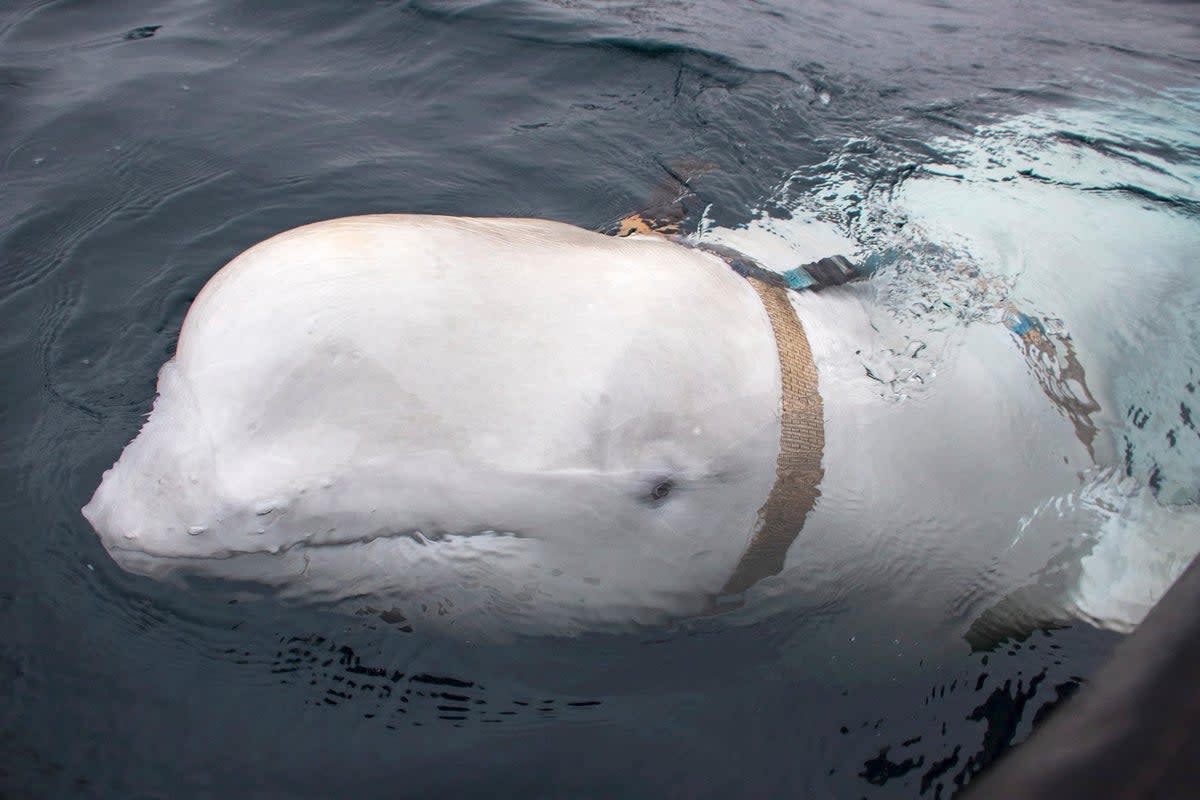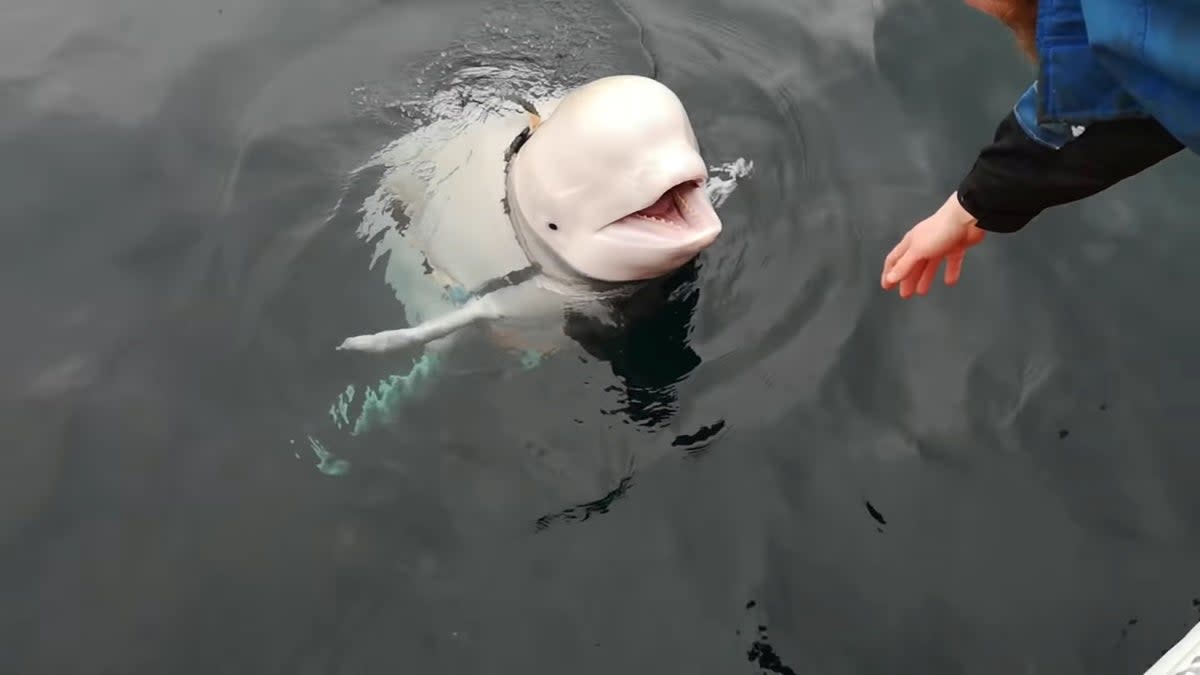Hvaldimir: The rugby-playing Russian spy whale
A whale suspected to be a Russian spy was spotted off Sweden‘s coast on Sunday, after being first seen near northern Norway four years ago.
Researchers had said that the whale- nicknamed Hvaldimir as a nod to the notorious Russian president Vladimir Putin- was thought to be a lost “spy” animal trained by the Russian Navy.
The whale has been known to go up to boats to ask for food and play fetch and appears to be tame, suggesting he is used to interacting with humans.

A timeline of where Hvaldimir has been spotted over the last four years:
April 2019
Hvaldimir, was discovered with a harness attached to his body and a label that said “Equipment of Saint Petersburg” in April 2019.
May 2019
The whale returned a phone to a woman whose iPhone fell out of her pocket into the water off the coast of Norway.
The footage shows Hvaldimir emerging from the sea with a phone in his mouth.
A video on Instagram shows the woman scratching Hvaldimir under the chin in appreciation.

June 2019
Diving supervisor, Tom Ralph, said the whale pulled a knife from another diver’s scabbard and then “backed away about a meter and just sat there with this knife in its mouth”.
November 2019
The whale was filmed “playing catch” with a group of South African rugby fans. He chased and returned the rugby ball using his mouth to the group of men.
May 2023
Hvaldimir has reappeared in Hunnebostrand off Sweden’s coast.
“We don’t know why he has sped up so fast right now”, Sebastian Strand, a marine biologist with the OneWhale organisation told the news agency.
He added that it was particularly puzzling because the whale was moving “very quickly away from his natural environment”.
“It could be hormones driving him to find a mate. Or it could be loneliness as belugas are a very social species — it could be that he’s searching for other beluga whales.”
He told AFP that the whale is believed to be 13 to 14 years old and at an age where “his hormones are very high”.
According to the Hvaldimir Foundation, the whale may have become dependent on humans due to hand-feeding and does not appear to be able to successfully hunt and feed for itself.
Mr Strand said Hvaldimir’s health “seemed to be very good” in recent years, as he continues to forage fish under Norway’s salmon farms.
Belugas in the past have been used to guard naval bases, help divers, and find lost equipment, biologists said. The whales were reportedly trained by the Soviets during the Cold War to sniff out mines and torpedoes.
A Russian military spokesperson denied in April that Hvaldimir was connected to a training programme while acknowledging that dolphins are sometimes used for military purposes.
